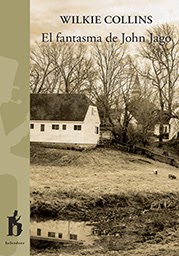About the book
In this her fourth novel, Elisa Beni grows, assuming with courage and skill all the challenges of the fiction author and far surpassing them: imagination, her own voice and the fictional territory, the impressive setting, the drawing of multifaceted characters, the relevant themes. and full of current suggestions, a captivating plot and, of course, powerful, quality prose that turns the work into an act of love for reading. A delicious narrative of adventures, luminous and committed, that does not ignore either the historical harshness of the time in which it is set or the social and individual consequences that come with taking a stand against a war in what some consider pacifist commitment and others mere cowardice at the time. to defend freedoms. The literary effort is top-notch and the ability to capture the reader’s attention and drag him into her world is undoubted.
Thule. The Dream of the North is a true game of mirrors, an ode to the stratification of the meanings of the text. That is why the novel has several readings, one merely playful and evasive and other deeper ones that navigate through dilemmas that are still very current and, even, through the play of literary references that hinder no one but that represent an extra pleasure for the reader. reader when identifying them.
The invading threat of a megalomaniacal leader.- The choice of historical context is not trivial in the novel. The precise documentation that the author handles places both the social context, continental public opinion, and the crossed interests in the face of the unequivocally arrogant and annihilating attitude of a leader like Hitler, which brings us current echoes of the various opposing positions regarding the Putin’s unilateral actions and the international and political stance that various leaders adopt. Nor are we foreign to the indifference of the ruling classes of all countries in the face of phenomena that do not directly affect their economic interests, and that of the rest of the people in the face of what seems distant. «It is incredible to what extent they live exclusively locked in their own desires, which are nothing more than their own convenience, as if life and history were forced to surrender to their interests. How crazy!«exclaims the Spanish woman after hearing the opinion of the patriarch of one of the great French wine families about the Nazis.
Pacifism versus cowardice.- The work raises the collision between the limits between individuality that flees from conflicts, ethical positions towards violence and the lack of will to face challenges and assume that the freedoms achieved must be defended. Thule not only reflects the permanent dilemma on a personal level but also in the public positioning of intellectuals and politicians. Where is the limit from which not defending yourself against what is forced upon you is morally acceptable? «Your position is nothing like your mentor’s. Rolland was always clear about his moral duty and his duty as an intellectual. He was not fighting only war but what he calls the ideology of war. I knew that he was going to place himself between the two front lines to proclaim the madness of both sides and that that position was the most dangerous (…) What you are going to do, Armand, is get to safety, but I don’t see the brave stance in you. What do I expect from a writer?«, scolds the protagonist Charles Dillon, his editor at Fayard.
The escape towards Nature.- Hell is others and paradise, therefore, must be leaving them behind. We all feel something like this at one time or another during the terrible pandemic in which we notice our overcrowding, our distance from nature, our inability to be self-sufficient. The island, forgotten even on maps, more than responds to the need for escape and wonder that we all incubate. Live with nature, assuming its limitations and enjoying its gifts, respecting what it wants to offer us and not taking more than we need. All of this, the beauty, the landscapes, the extreme climate, the auroras, the distance, the ocean, the ineffable, in short, captivate the reader who enters this unaltered world.
«He waited outside until Armand had finished, under the swinging lights that took the shape of knotted ribbons over the Milky Way, like a toy abandoned by God, tired of fun. «Urdina had nothing to do with Lemán. It wasn’t just the size, it was the mystery. The intense blue seemed almost artificial, and its contrast with the red rocks and sand arising from the erosion of volcanic pozzolans that surrounded it was a spectacle from another world.
Cooperation and the possibilities of coexistence.- In the world of The Impugnable, surviving alone is difficult, even if you are a tycoon. On the island there is a community regime, with a common lobster enterprise, in which all the islanders work – including the owners of the large houses – and from which everyone benefits. There is no need for police or judges in a society that resolves its issues in an assembly through direct democracy. Cooperation between its inhabitants is constant: for livestock, for fishing, for building and even to overcome the most extreme threats. None of this is hindered by the coexistence of people of different nations, ideologies or creeds. Collaborating is synonymous with surviving. The Rolzou also soon understood this. Not even the language is a problem, in La Inexpugnable almost everyone speaks it and there is a pidgin -an instrumental mix- that allows Basques, French, English, Spanish and Icelanders to communicate. Language used as a connecting bridge, never as a barrier. «What they will say had no place in a territory like that, in which everyone had to collaborate to survive. Everyone would fall sometime and everyone would get up, surely thanks to the collective push. Life was rich enough not to need the spice of other people’s evil.«.
The power of beauty and love.– Thule is an adventure novel but above all it is a luminous narrative that escapes the current tendency to only look at the bitter side of reality. It is not that evil does not exist, its threat is very present in history, but that it is not afraid to revel in natural and human beauty and its beneficial effects as well as in the redemptive nature of love. «They both looked in silence at their hosts as they finished descending the stairs with their faces golden by the light, like two high elves who had arrived from the other side of reality to receive them (…) There was no desire, nor lust, nor envy in their faces. hearts, just gratitude for being part of your circle, your home.”
Motherhood, and the oppression of women.– At the beginning of the 20th century, no woman doubted that her biological conditioning marked her place in the world. Curious at least that this is forgotten today when attempts are made to return women to some of them. Thule perfectly portrays how freedom from slavery derived from reproduction was a privilege of upper-class women that, after World War II, began to spread to other classes thanks to scientific advances and the welfare state. «Don’t be cruel, Renée. Not even considering that your son is exempt from such servitude can you be so unsympathetic towards my daughter’s.«, one mother-in-law will say to another in a café in La Rochelle.
psychological perversity– Great men can hide great miseries and tremendous violence. Constanza will try to help her friend Aline in freeing her from a toxic love that she gives and takes away with the unhealthy precision that only a pervert can handle. What is behind Nathaniel Buss, a seducer committed to freedom or a fetishist mired in permanent dissatisfaction? «Buss is a cultured and very intelligent man, a man who thinks that with his will he could achieve any goal, but he has an obvious weakness for women. He needs to conquer them, like Don Juan, so that this act of power reaffirms him before his own eyes.«.
Literature as part of life.- The entire novel is a tribute to literature as an essential part of men’s lives. The narrative is populated by writers, libraries, books and winks. The first of them the name of Dachary’s ship, the Little Rouritania, in clear reference to the territory created by Hope, to which he pays tribute with this imaginary island. The subtle and constant references to Byron, Milton, Beckett, Poe, Carson, Whitman, Cohen or Conrad run through the entire narrative in a textual game that does not bother the less informed reader but that, without a doubt, provides texture and literary play to all those able to enjoy it
Elisa Beni loves literature and this work is also a heartfelt recognition to all those who share her passion.
Source: https://algunoslibrosbuenos.com/thule-el-sueno-del-norte


